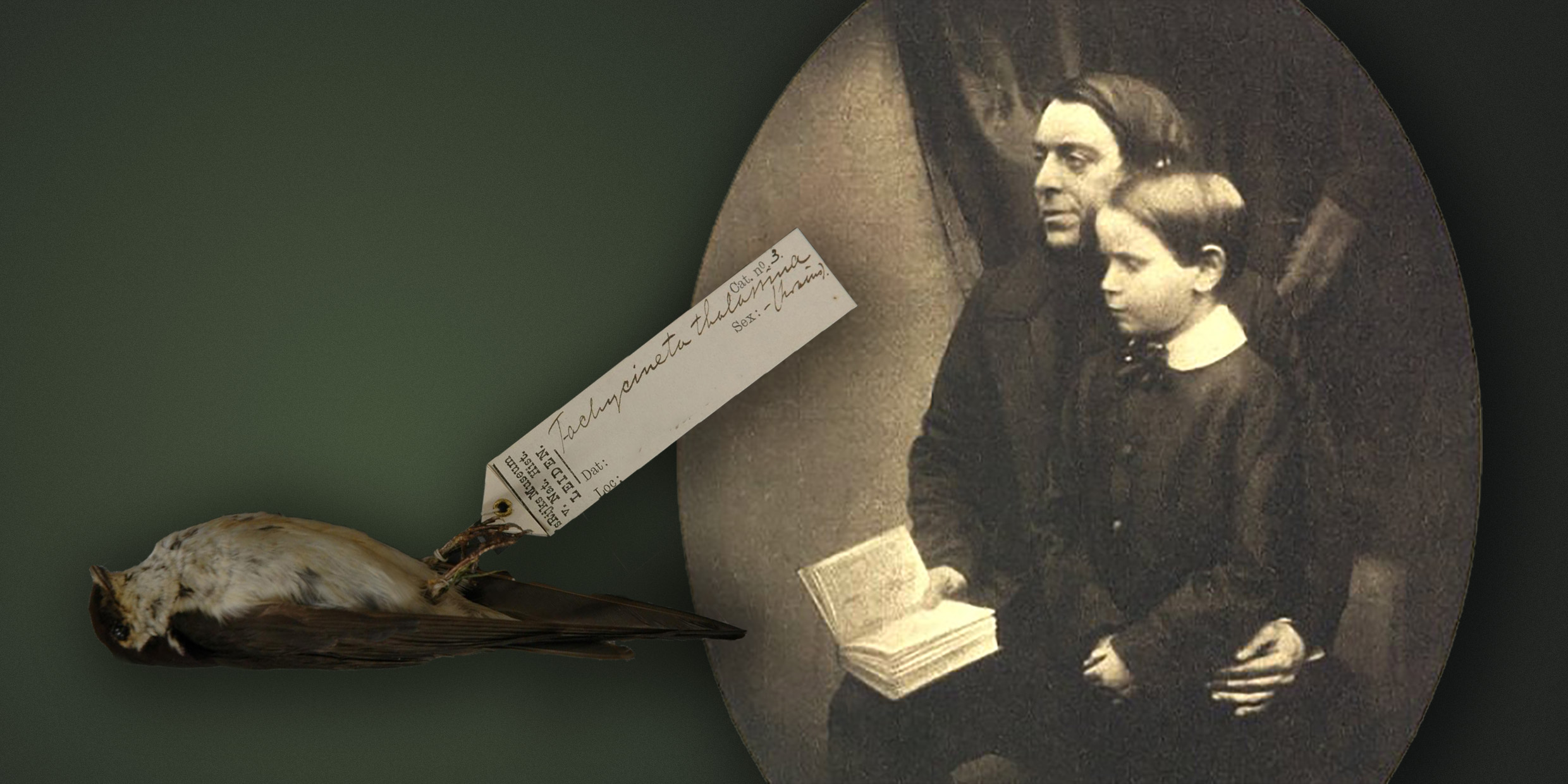Originally published 20 May 2007
On September 21, 1849, Emily Bowes, the wife of the British zoologist Philip Gosse, gave birth to a baby boy. The father recorded in his diary: “E. delivered of a son. Received green swallow from Jamaica.”
One can rightly conclude from the diary entry that the child — who would become the eminent literary critic Edmund Gosse—was not exactly welcome. A dead bird from the West Indies was rather more exciting for the father — another creature he might exactly describe and catalogue, another manifestation of God’s creative glory.
For, yes, Philip Gosse was not only a zoologist; he was also, like his wife, a devoutly fundamentalist Christian, a member of the sect known as the Plymouth Brethren, and a literal reader of the Scriptures. The world was created in seven twenty-four-hour days, exactly as described in Genesis, and that included every fish in the sea and every green swallow from Jamaica.
And what about those nettlesome fossils? Well, just as Adam was undoubtedly created with a navel, so the Lord made an Earth with built-in evidence of a past existence it never had. Gosse published his ideas in a book called Omphalos, or “navel,” which appeared just a few years before Darwin’s blockbuster. Poor Gosse. No one liked his book. Not the Christian literalists, who could not imagine such deviousness on the part of the Creator, nor the scientists, who snorted with derision.
Meanwhile, young Edmund was growing up in a household wrapped in a cocoon of cultural seclusion, home schooled like the most cosseted child of Christian America today. Other than the scientific treatises perused by the father, the Bible was the family’s only source of information and entertainment. No newspapers. No novels. Such things were not only useless, they might positively be detrimental to the soul’s salvation.
In his engaging memoir, Father and Son, published exactly a century ago in 1907, Edmund Gosse describes the household he grew up in: “Here was perfect purity, perfect intrepidity, perfect abnegation; yet there was also narrowness, isolation, an absence of perspective, let it boldly be admitted, an absence of humanity.” Every action of the parents was based on the perceived Divine Will as revealed in answer to prayer.
Toys and sweets were not young Edmund’s lot; he was chastened always to avoid attachments to material things — the essence of idolatry. Once, in a bold test of his father’s and Divine authority, he placed a chair upon a table, knelt before it, and prayed “Oh Chair,” then waited to be struck down by a vengeful God. Nothing happened. The boy’s first hint of a world beyond home and chapel was a trunk he found in the attic of the house, the lid of which had been lined with pages torn from a popular novel. He devoured every word. Here were fragmentary hints of literature, language and art, and they filled him with ”delicious fears.”
Then came The Origin of Species, and all of Britain was caught up in the ensuing debate.
Philip Gosse was conflicted. Two theories of nature, two kinds of thought, each absorbing, each convincing, each totally incompatible with the other, One had to take a stand. Philip made his choice. In his son’s words, “He allowed the turbid volume of superstition to drown the delicate stream of reason.”
It was in such an atmosphere that eleven-year-old Edmund struggled to free his mind and will from an authority that brooked no dissent. “I was naked,” he writes of the differences between himself and his father, “he in a suit of chain armor.” The boy’s tentative challenges were crushed with the father’s invocations of God’s own words, roaring from the pages of Scripture. Edmund Gosse found his own voice only when he was old enough to leave his father’s house for London.
Father and son never ceased to love one another, but their spirits were still at odds when Philip Gosse died in 1888. Edmund concludes his memoir of his father:
Let me speak plainly. After my long experience, after my patience and forbearance, I have surely the right to protest against the untruth (would that I could apply to it any other word!) that evangelical religion, or any other religion in a violent form, is a wholesome or valuable or desirable adjunct to human life. It divides heart from heart. It sets up a vain, chimerical ideal, in the barren pursuit of which all the tender, indulgent affections, all the genial play of life, all the exquisite pleasures and soft resignations of the body, all that enlarges and calms the soul, are exchanged for what is harsh and void and negative, It encourages a stern and ignorant spirit of condemnation; it throws altogether out of gear the healthy movement of the conscience; it invents virtues which are sterile and cruel; it invents sins which are no sins at all, but which darken the heaven of innocent joy with futile clouds of remorse.
A harsh judgment, yes, but perhaps all the more meaningful coming from one who grew up in a household divided between science and God, and who had few allies in his struggle to discover the joy and beauty the world—this world — contains. The father demanded total obedience to revealed Truth. Without anger or remonstrance, the son took “a human being’s privilege to fashion his inner life for himself.”



